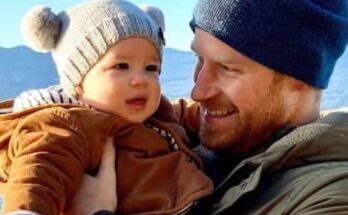
The air in our home, once filled with the tentative excitement of a newly blended family, had grown thick with unspoken tension. My five-year-old son, Leo, used to be so vibrant, so full of boundless energy and infectious laughter. But since Mark, my new husband, had moved in, a subtle shift had occurred. Leo’s boisterous joy seemed muted, replaced by a persistent undercurrent of complaints, mostly directed at Mark.
“Mark used all the blue Legos!” he’d whine, his lower lip trembling. Or, “Mark made my sandwich wrong!” Even seemingly innocuous requests from Mark were met with resistance and a general air of discontent. Initially, I dismissed it as a normal adjustment period. Blending families is rarely seamless, and I attributed Leo’s behavior to a feeling of displacement, a need for attention, and perhaps even a bit of jealousy. Mark, to his credit, tried to be patient and understanding, often offering solutions and reassuring Leo that he wasn’t trying to replace his father.

But the complaints persisted, chipping away at the fragile peace we were trying to build. It was always something, a constant barrage of negativity that seemed disproportionate to the situation. Mark’s patience began to wear thin, and I found myself increasingly frustrated, caught between defending my son and trying to maintain harmony within our new family unit.
One evening, after a particularly trying dinner where Leo had refused to eat anything Mark had prepared, I pulled him aside. “Leo, honey,” I said, kneeling down to his level, “Why are you always complaining to Mark? He’s trying to be nice to you, but it’s hard when you’re always upset.”
He looked down at his feet, scuffing them against the rug. He mumbled something inaudible.
“What was that, sweetie?” I asked gently.
He hesitated, his eyes welling up with tears. Then, he leaned in close, his voice barely a whisper, “I heard Daddy on the phone… He said I’m a problem.”
The words hit me like a physical blow. The air seemed to leave my lungs, and the room swam slightly. My ex-husband, Leo’s biological father, had planted this seed of self-doubt, this insidious idea that Leo was somehow an obstacle, a burden, a problem.

The realization was devastating. Suddenly, Leo’s incessant complaints weren’t just random acts of defiance. They were a desperate cry for help, a manifestation of the anxiety and insecurity he was carrying within him. He wasn’t complaining about the Legos or the sandwich; he was complaining because he felt like he was in the way, like he was a burden on our new family dynamic. He was acting out the words he had overheard, internalizing the negativity and projecting it outwards.
The weight of the situation settled heavily upon me. I knew that mending this fractured trust, reassuring Leo that he was loved and cherished, and counteracting the damage inflicted by his father would be a long and arduous journey. But in that moment, holding my son close, I vowed to do everything in my power to heal his wounded heart and create a home filled with love, acceptance, and unwavering support. The whispered accusation had revealed a heartbreaking truth, and now, the real work of rebuilding could begin.



